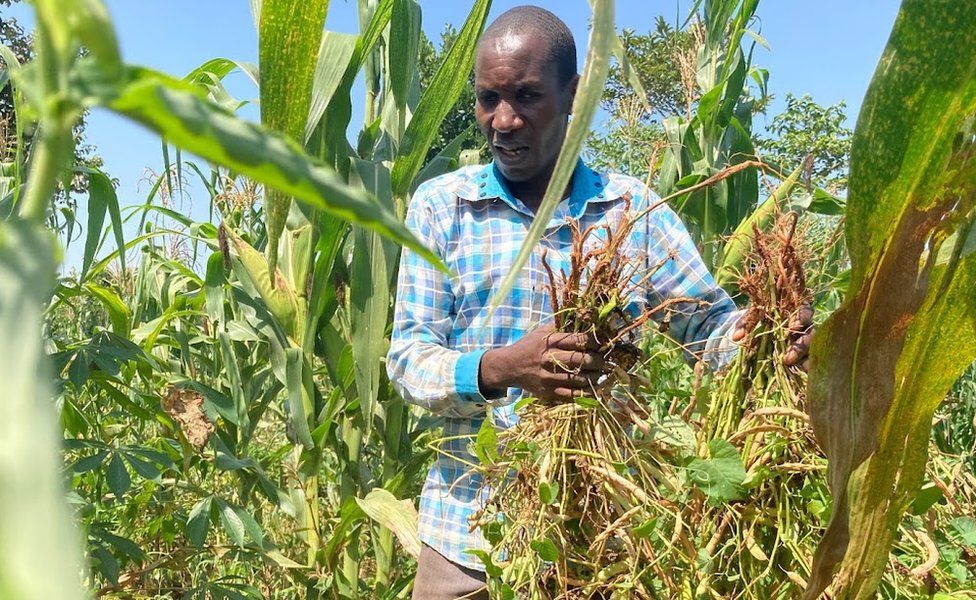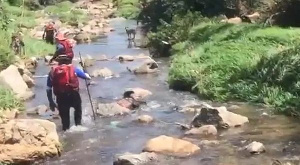South African fear impact on new covid variant measures
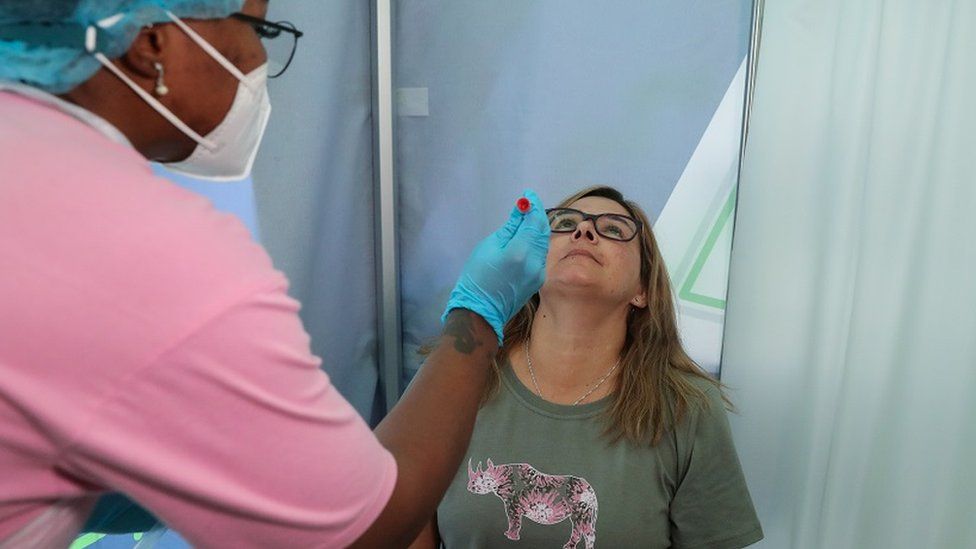
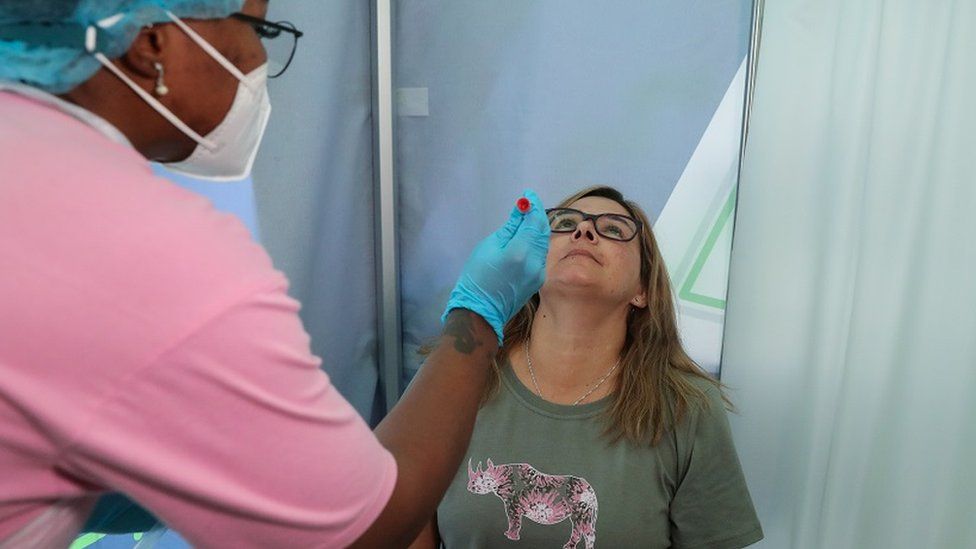 IMAGE SOURCE,REUTERS
IMAGE SOURCE,REUTERSSouth Africans have responded sharply to the news that the UK, and a growing list of other countries, have reacted to the emergence of a new Covid variant with red-listings and travel bans.
While there is genuine pride here in the country’s scientific expertise, and the speed with which South Africa has been able to identify and share information about new variants, there is also a strong sense that the nation is being unfairly punished for its successes.
“The world should provide support to South Africa and Africa and not discriminate or isolate it,” said Prof Tulio de Oliveira, the Durban-based scientist leading efforts to understand the new variant.
In a series of tweets, he pointed out that South Africa has been “very transparent with scientific information. We did this to protect our country and the world in spite of potentially suffering massive discrimination.”
South Africa has a sophisticated monitoring infrastructure that allows it to do the sequencing work effectively.
‘UK should reconsider’
Prof de Oliveira urged “billionaires and financial institutions” to help the country cope with the economic damage caused by new travel restrictions.
South Africa’s Foreign Minister Naledi Pandor was also quick to condemn the UK’s travel ban, describing it as “rushed” and damaging to tourism and business, and urging the UK government “to reconsider this decision”.
News of the flight bans has caused inevitable frustration among many South Africans who had hoped to see visiting friends and family over the southern hemisphere summer holidays in December.
South Africa was one of the last countries to have previously been removed from the red list last month.
“It’s absolutely ridiculous that they’ve imposed it again so quickly without investigating this new variant,” said one woman waiting for arrivals from London at Cape Town’s international airport this morning.
“My sister just got on the flight [from London] but I think she’ll be staying here for a long time. We were just getting on our feet again with tourism, and this is going to just kill it.”
“The new ban is a knee-jerk reaction of the UK government that puts airlines, hotels, travel businesses and travellers in a very difficult situation,” said Otto de Vries, CEO of South Africa’s travel agents’ association, Asata.
One industry analysis estimated that South Africa lost 26 million rand ($1.6m; £1.2m) for every day it spent on the UK’s red list.
“The UK being our largest inbound international market, last night’s news by the British government has caused widespread disbelief and disappointment amongst our hospitality industry as we enter our peak festive season period,” said Rosemary Anderson, national chairperson of the Federated Hospitality Association of South Africa.
Overall, tourism employs 2.8 million people and in 2018 it earned the country about $8bn (£6bn).
The variant was first sequenced in neighbouring Botswana, and then in South Africa’s capital, Pretoria. That was where a group of students, exactly how many is not known, took PCR tests which all contained an anomaly that prompted experts to send their samples to Prof de Oliviera’s Durban laboratory for genome sequencing.
“His team then found all these mutations. So we’ve only know about it for a few days, and because it’s a new variant we have no idea how it will actually behave,” said Prof Salim Karim, former chair of the South African government’s Covid advisory committee.
“All we can do is extrapolate some of the likely behaviour based on previous similar mutations. But we do know that it spreads fast – we’ve seen how rapidly it spread in Pretoria. It sky-rocketed.”
From a relatively low base, the numbers of confirmed cases in South Africa have shot up this week – from less than 700 on Sunday to almost 2,500 on Thursday. It is believed the increase is largely down to the new variant.
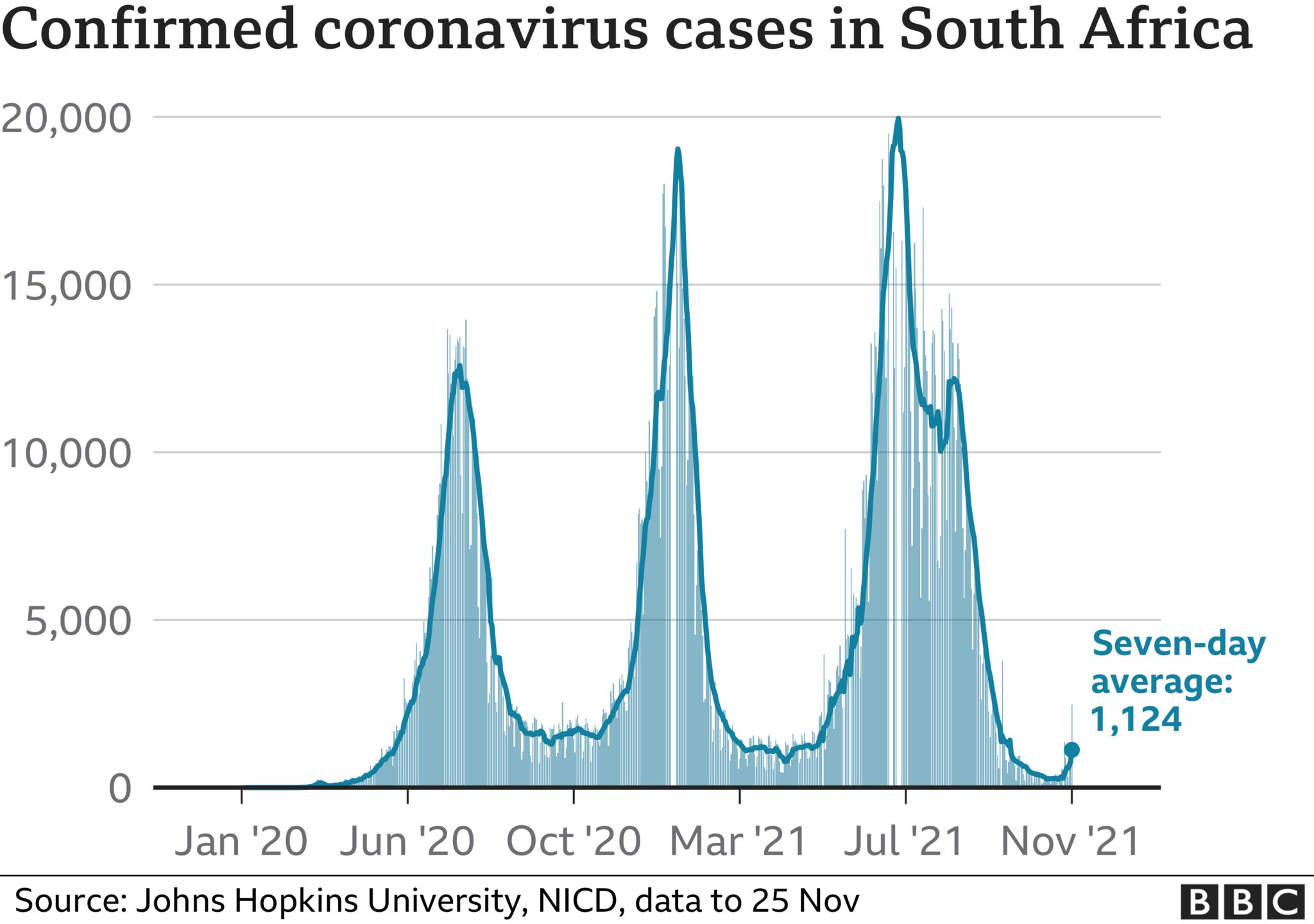
South Africa’s vaccination programme has slowed in recent months – not because of a lack of supplies, but due to public indifference.
An estimated 42% of the population has had at least one jab. But roughly two-thirds of those aged over 60 have been vaccinated.
Experts are hopeful that the variant may help encourage more people to get jabbed.
The government has urged people to come forward, saying: “Let us crush the power of the new variant by vaccinating to limit the number of mutations.”
“It’s going to be a shock to the system. I think it can have a positive effect [on vaccination rates],” said Stavros Nicolaou, senior executive at Aspen Pharmacare Group.
“We know this variant is more contagious. My sense is that the current vaccines are likely to reduce morbidity. They might not be as effective in terms of preventing people getting infected. All the more reason, if you’ve got a more contagious variant, that you should go out and get vaccinated.”
The bigger concern is the potential impact of the variant if it spreads to other parts of the continent where, on average, roughly 3% of the population has been vaccinated.
bbc.com



